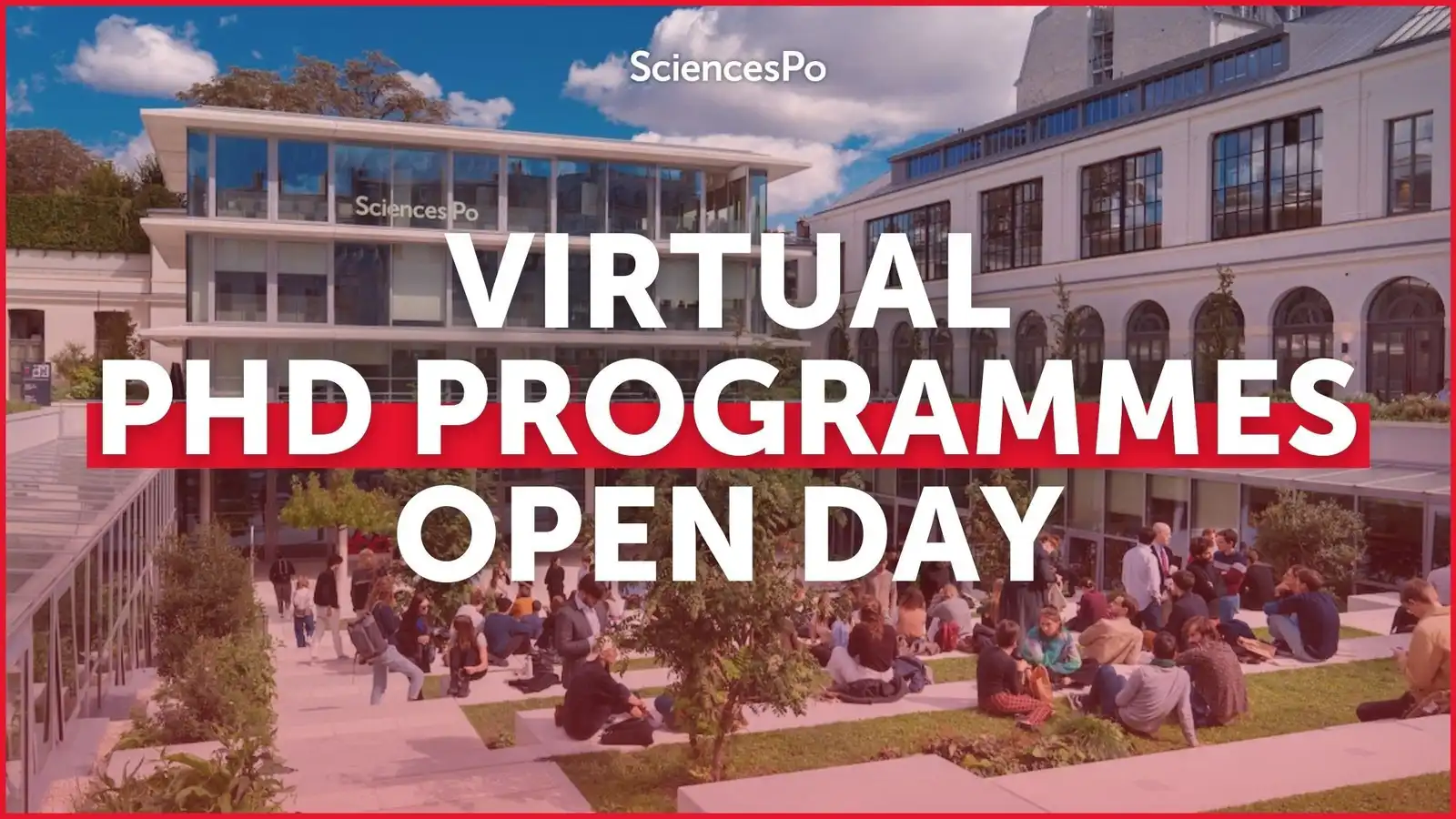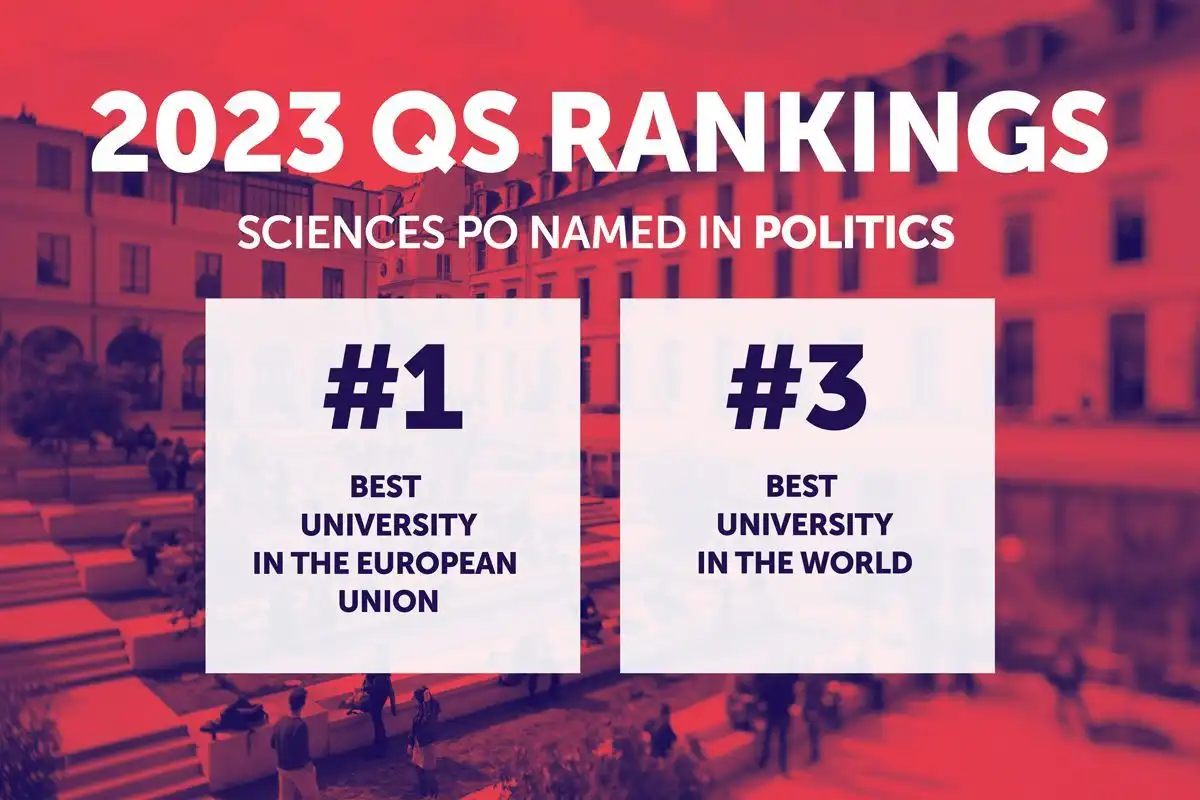
Home>Academics>PhD Programmes>Doctorate in Political Science
Doctorate in Political Science
Three-Year PhD Programme
Programme in French & English
Virtual PhD Programmes Open House Day

Thursday, 29 January 2026: Explore the 5 PhD programmes offered by the School of Research and meet our staff, researchers, and PhD students.
Programme objectives

The political science doctoral programme is designed to provide:
- A complete international level training course in all of the areas relevant to political science ;
- A research methodology in the social sciences including classes in qualitative and quantitative analysis;
- A personalised supervision process within the Doctoral school and in the research centres, by an internationally recognised and involved academic staff.
The 3 majors of the doctorate in Political Science
Programme structure
The doctoral programme in political science should ideally be completed in three years.
During the three year doctoral period, students are supervised by a thesis supervisor from one of the three political science laboratories at Sciences Po: the Centre de Recherche Politique de Sciences Po (CEVIPOF), the Centre de recherches internationales (CERI) or the Centre for European Studies and Comparative Politics (CEE). Doctoral students must also follow at least three doctoral seminars. Finally the three-year thesis period is linked to the Sciences Po research centres but also to our overseas university partners. The Political Science doctorate is awarded after this three-year period and after the viva.
Students who apply to the doctoral programme come before a jury that takes in account their grades, the quality of their master's dissertation and the candidate's capacity to commit to a research project. The doctoral programme is open not only to students who have followed the initial Sciences Po programme but also to those with master's degrees from another French or foreign establishment. However, it may be required of students who have not taken Science's Po's political science course to follow some basic or specialised classes that the jury deems necessary before beginning their doctoral research.
Careers
The political science programme trains academics and researchers for careers in France and abroad, as well as high-level professionals for all levels of politics: public politics, opinion survey analysts, territorial administrations, journalism, political consulting, diplomacy, foreign diplomatic academies, specialists in specific cultural areas, etc.
Professionalization in research is ensured by the doctoral students getting a chance to work in one of the Sciences Po laboratories where they can meet with the teams, take part in research projects and take specialised seminars. They are also invited to take part in contracts and projects financed by the European commission. To do so, they can rely on the advice of the Mission Europe de la recherche de Sciences Po.
Doctoral students in the Political Science department also benefit from the activities of the CEVIPOF, the CERI and the CEE. Professionalization in teaching is also available thanks to the tutoring they carry out voluntarily, to the introductory teaching they do and the method conferences given by the monitors.
Doctoral students can also follow all of the professionalization seminars proposed by the Doctoral school.
Support from research centres
The political science doctoral programme receives the support of Sciences Po's three biggest laboratories who also take in doctoral students:
- The Centre de Recherches Politiques de Sciences Po (CEVIPOF): It covers three main fields: political behavior, political sociology, comparative politics, and political theory. Quantitative and qualitative methodologies are used at different levels of observation: local, national and European. The CEVIPOF has a permanent faculty of 24 researchers and professors, approximately 25 PhD students, and 20 associate researchers. The CEVIPOF is also responsible for the French National Election Studies. The centre is chaired by Kevin Arceneaux, professor of political science.
- The Center for International Studies (CERI): this centre works on social sciences on an international level by combining a number of different approaches: international relations, comparative political sociology, the political economy, political theory and political anthropology. The researchers at the CERI produce work that is anchored in the field, where they speak the language and know the territory. It is run by Stéphanie Balme, Director of Research at Sciences Po ;
- The Centre for European Studies and Comparative Politics (CEE): as a multidisciplinary research centre, the CEE develops comparative studies on European societies and political systems and on the impact of European integration. It covers political issues by emphasising the link between policy and politics and by investing in the question of methods. It is run by Renaud Dehousse, Professor at Sciences Po.
Admission to a PhD
Tuition fees
Mobility grants are available to doctoral students to enable them to take part in conferences, carry out fieldwork and study periods abroad.
See Tuition Fees
Current theses
Consult the list of doctoral students:
Contacts
Thierry Balzacq
Head of studies in Policital Science,
Full Professor at Sciences Po and Professorial Fellow at CERI